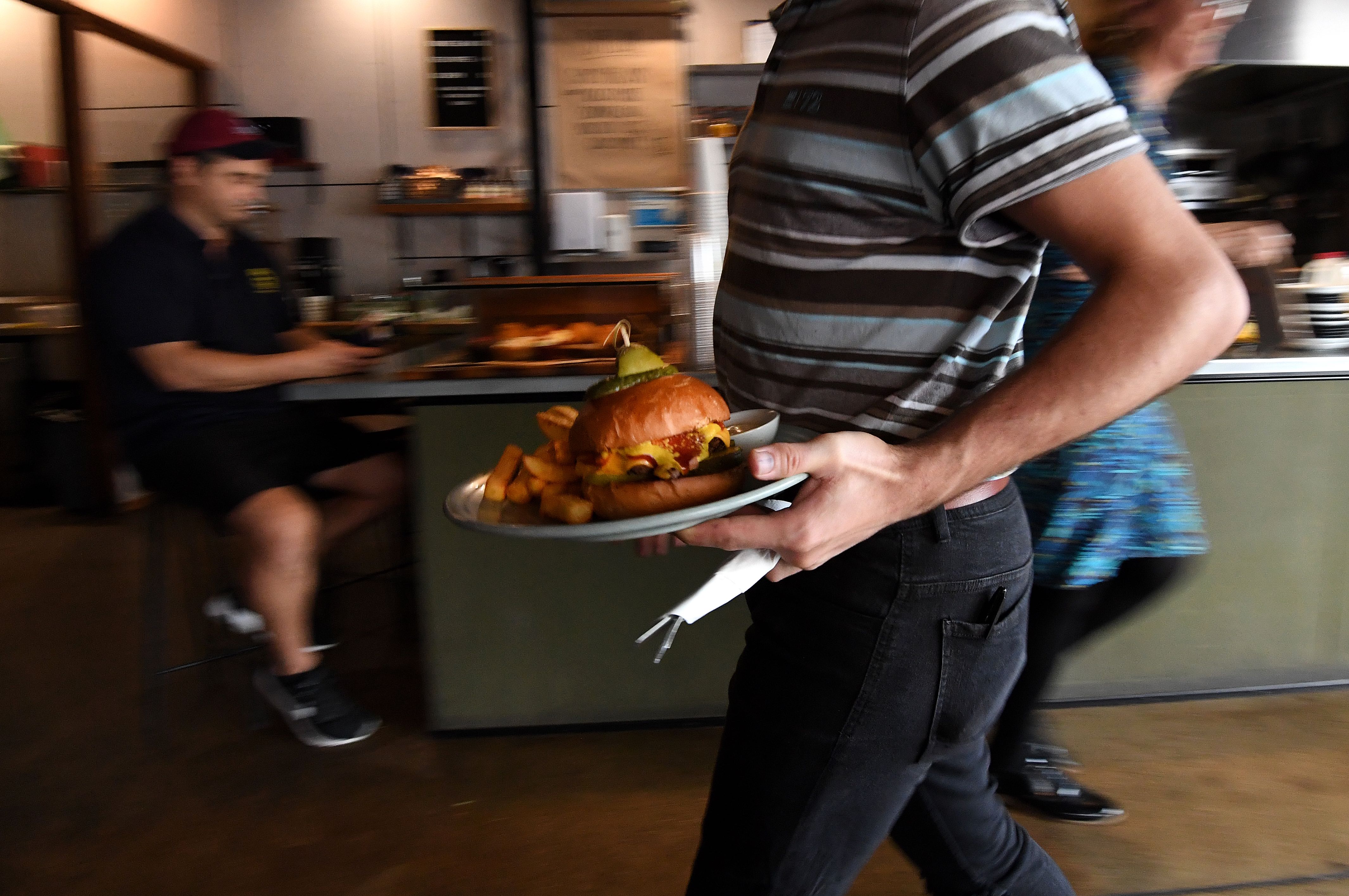
Business & Economics
The minimum wage gender divide

A proactive model helps the Fair Work Ombudsman track down unscrupulous employers who exploit or underpay their workers
Published 26 May 2019
Imagine receiving a pay check that’s less than half the minimum wage, or doing a full year of unpaid work. Maybe you’re too scared to complain for fear of losing your job or your visa. Or maybe you don’t understand your rights.
That is the reality for some Australian workers, especially in the agricultural, retail and hospitality industries.

Most of us like to think we live in a country where everyone can get a fair go, especially at work. But there is a big gap between the way businesses are supposed to treat their employees and the way many actually do, says Professor John Howe, director of the University’s Melbourne School of Government and a leading expert on workplace regulation.
“We’ve seen all sorts of issues. For example, there are many different forms of underpayment of wages, such as people being paid with food instead of money – free pizza in lieu of pay,” Professor Howe says.
“Then, you see people who aren’t getting leave entitlements, or businesses engaging in elaborate schemes to unlawfully disguise employees as independent contractors, where there are very few minimum standards.”

Business & Economics
The minimum wage gender divide
According to one recent report, every year, Australian workers miss out on around $A1 billion in unpaid wages.
The 2018 report also found that a third of foreign workers were paid $A12 an hour or less. That’s about a third less than the national minimum wage which sits at just below $A19 per hour.
Professor Howe and other experts at the University of Melbourne have worked to change that, ensuring that Australia safeguards the rights of all workers and while maintaining a level playing field for compliant businesses. They have teamed up with the Office of the Fair Work Ombudsman (FWO) – the federal workplace watchdog – to support more effective enforcement of workplace regulations.
When the FWO was established in 2006 (initially as the Office of Workplace Services before becoming the FWO in 2009), the number of workplace non-compliance claims they began to receive was very high, says Professor Howe.

Despite educational initiatives and large financial penalties, the FWO was still seeing widespread and systemic non-compliance in a range of forms, including exploitation, underpayment and poor working conditions.
For example, in 2017 the FWO identified and fined rogue cleaning operators in Perth for their “systematic” exploitation of vulnerable overseas workers.
And two years earlier, in 2015, reports surfaced that 7-Eleven franchise owners were making their largely migrant staff return part of their pay checks in cash, and recording less than half the hours they worked.

Business & Economics
Tackling underpayment in cleaning supply chains
“The Fair Work Ombudsman only has a certain amount of resources to devote to its education programs as well as finding non-compliance and punishing it.
So unscrupulous business people may think that they’re going to get away with breaking the law if they play their cards right,” Professor Howe says.
In recent years, Professor Howe, Professor Sean Cooney and Dr Tess Hardy, co-director of the University’s Centre for Employment and Labour Relations Law, have helped the FWO implement the take-up of a more proactive approach.
“In the early years, the Fair Work Ombudsman’s office was very much focused on handling complaints, but our research into other systems suggested that not all people who are being exploited complain, especially if you’re a migrant worker or a young person,” says Professor Howe.

Professor Howe, Professor Cooney and Dr Hardy’s research suggested that the FWO would benefit most from the “strategic enforcement model” developed by US economist David Weil.
Instead of waiting for people to report wrongdoing, among other things the model targets business models that might encourage or perpetuate exploitative practices.
“The concept is basically, ‘How do you prioritise or target your resources in a way most likely to capture the bad guys and persuade big brands to take more responsibility for compliance in their supply chains?’ It’s not just by waiting for complaints, although that is still an important function of the agency,” says Professor Howe.

Business & Economics
Henderson’s legacy: Revisiting universal basic income
“You try to work out where there are likely to be pockets of non-compliance. And one way you do that is by looking at business models and industries to see how they operate and to see where there are downward pressures on labour costs.”
The model shifts the focus from non-compliant individuals and small businesses to larger industry structures, like large franchises or business conglomerates, with the hope that enforcement will have a flow-on effect through the relevant business network.
One example where the model has been adopted relates to shopping trolley collectors working at Coles’ supermarkets. An inquiry found that some were paid as little as $A5 an hour working for contractors who then undercut their wages.
“The Fair Work Ombudsman worked out that they needed to engage with Coles as the lead firm that was setting a price for the service company that was responsible for providing trolley collection services,” Professor Howe says.

Although denying it was legally responsible for the underpayment of trolley collectors, Coles entered into an enforceable undertaking, or an agreement with the FWO, accepting they had an ethical and moral responsibility for requiring compliance with employment standards in their supply chain to ensure fair and safe work opportunities for workers on Coles sites.
Eventually, the company began to bring all its trolley collection services back in-house.
A similar inquiry of Woolworths’ supply chain in 2016 found that the business was in breach of workplace laws in the vast majority of its 130 stores. It has since taken steps to ensure that contract hours and wages are measured through Woolworths’ own systems.

Politics & Society
Should we expect more from lead firms?
“I think we were part of a shift in the Fair Work Ombudsman’s approach to really try and identify where the most vulnerable workers were and to think more about why the exploitation was happening and work out how can we get to those drivers,” says Professor Howe.
“And I think that’s certainly had an impact in getting the message out and supporting workers in those industries.”
Professor Howe and Dr Hardy also provided guidance to the 2016 Migrant Workers’ Task Force and other government inquiries into worker exploitation, which led to 2017 legislation aimed at providing greater protection to vulnerable workers.
The newly re-elected Morrison Government also included enforcement funding for the FWO in its 2019 budget, and made election promises to introduce criminal penalties in relation to worker exploitation.

“I think we can expect to have involvement in or impact on policy, because of our relationship with the Fair Work Ombudsman and our willingness to see the office as a positive force,” says Professor Howe.
“There is a lot of focus at the moment on measuring the extent of non-compliance, particularly among migrant workers. This research makes an important contribution.
“But what is potentially more critical is identifying and assessing regulatory strategies for changing behaviour and reducing employer non-compliance in the longer term, for the benefit of workers. This has been the focus of our research,” says Professor Howe.
“It’s important for research to examine the question of what’s going to actually work?
“We’re very much interested in what regulatory strategies will be effective in reducing non-compliance with employment standards and reducing worker exploitation. We will continue to explore that question in our future research.”
Banner: AAP